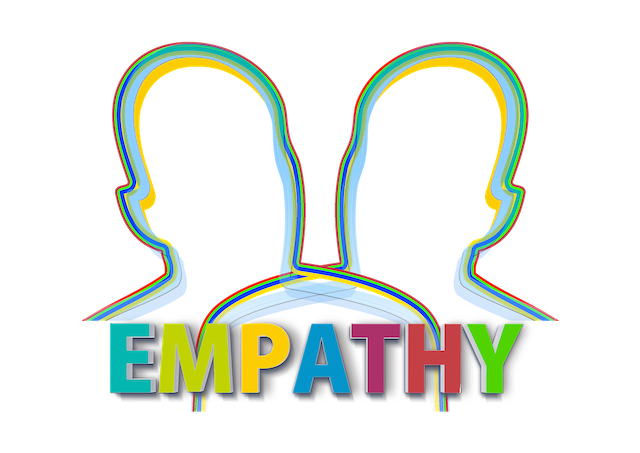The wrong kind of empathy prevents you from giving effective feedback!
Regularly, I work with leaders who struggle with giving open and honest feedback to low performers in the team. They all have one thing in common: they believe that giving honest feedback to their direct report would be very painful for the receiving person and rather demotivate them.
 These leaders are highly empathetic and really concerned about the well-being of their people. The interesting aspect was that the empathy driving them is described by Daniel Goleman as emotional empathy (in his book Social Intelligence). He considers this kind of empathy as not only relating to the other person but also feeling physically along with them and experiencing similar emotional states, thus, connecting with the disappointment and pain the other person may feel when receiving critical feedback.
These leaders are highly empathetic and really concerned about the well-being of their people. The interesting aspect was that the empathy driving them is described by Daniel Goleman as emotional empathy (in his book Social Intelligence). He considers this kind of empathy as not only relating to the other person but also feeling physically along with them and experiencing similar emotional states, thus, connecting with the disappointment and pain the other person may feel when receiving critical feedback.
From his research Goleman points out that this kind of empathy locks people into a state of mental paralysis, disabling them to do anything about the situation. In their respective situations, my clients were exaggerating the possible suffering of the other person through their own imagination, hence, even with the best skills and the strongest intentions to help they felt unable to give feedback.
The subsequent work with all these clients had a similar sequence and outcome
In the course of the conversations I offered them a different perspective: By not giving open and honest feedback they are depriving their low performer(s) of the opportunity to change and improve. My clients realised that they betray their own best intentions to develop their people. This shifted their thinking and enabled them to go one step further in their beliefs. It allowed them to develop a different kind of empathy, which Daniel Goleman describes as compassionate empathy or empathetic concern.
Is this just semantics, one may ask?
Actually: no! The Cambridge dictionary defines compassion as a strong feeling of sympathy and sadness for the suffering or bad luck of others and wishing to help them. The latter part of the definition is what makes all the difference here!
The business leaders, my clients, developed their new belief that only open and honest feedback, when delivered skilfully, will turn their intention of developing their people into reality. This helped them to become highly effective in delivering constructive feedback. It was amazing to hear back what happened after they put this insight into practice. One described it in the following words: “you would not believe how surprised I was when my low performer told me at the end of the feedback that he was appreciating the honest conversation which gave him clear areas to focus on to become better in the way he did his job.” Needless to say, this experience reinforced my client’s new approach.
Showing compassionate empathy or empathetic concern really is key in giving feedback effectively if developing people in an organisation is your intention!
If you like to discuss this subject further leave a comment below or get in touch with me direct.
Join us online! 
We explore this and other business relevant subjects in our Virtual Leaders Lounge. This is an informal online meeting of maximum 10 business leaders where we discuss challenges in virtual teams and organisations and share best practices. No PowerPoint is used, no prep work required!
Check it out here or register direct so you get the invitations and have a chance to get one of the 10 seats available for a lounge session.

